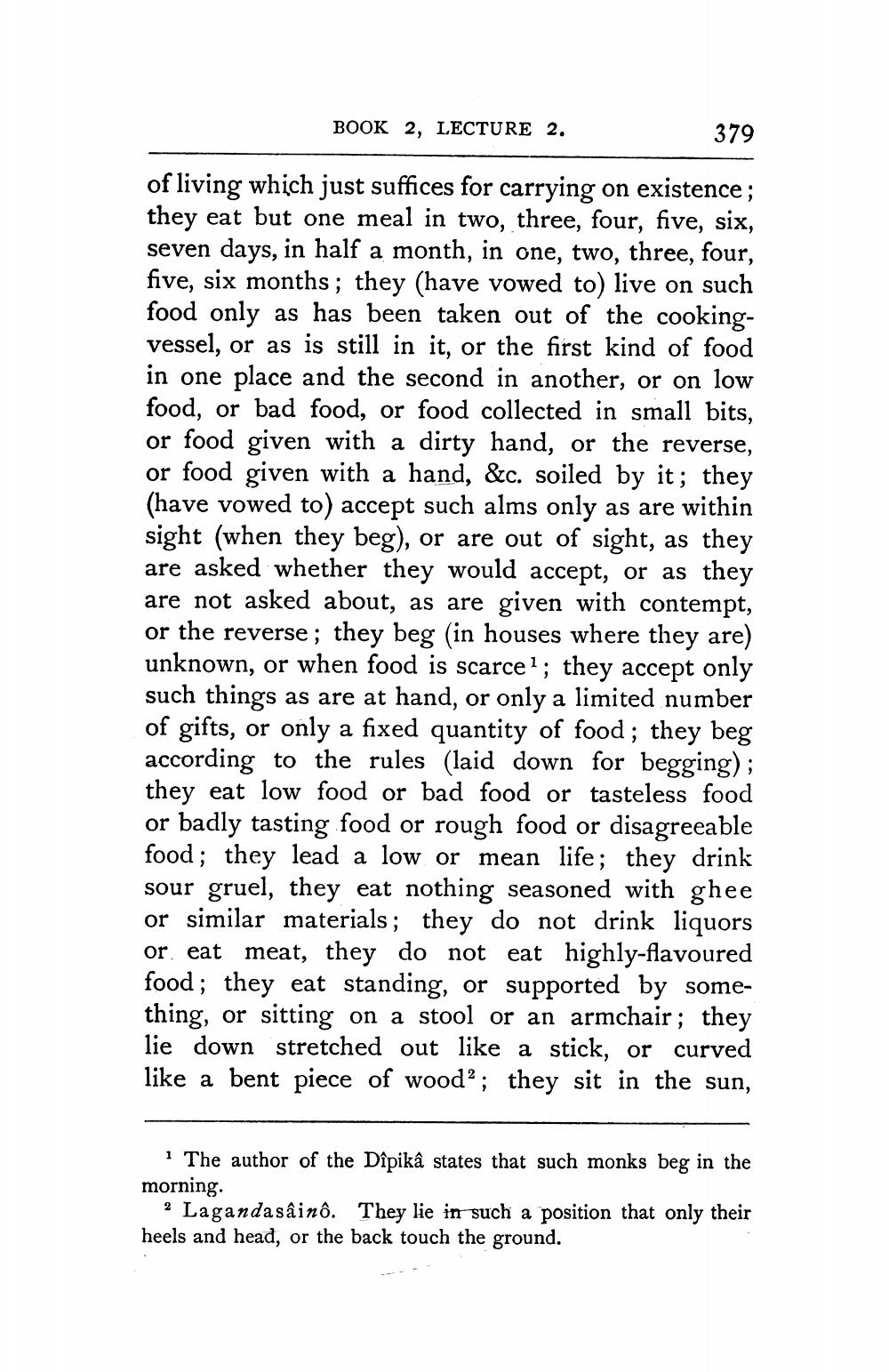________________
BOOK 2, LECTURE 2.
379
of living which just suffices for carrying on existence; they eat but one meal in two, three, four, five, six, seven days, in half a month, in one, two, three, four, five, six months; they (have vowed to) live on such food only as has been taken out of the cookingvessel, or as is still in it, or the first kind of food in one place and the second in another, or on low food, or bad food, or food collected in small bits, or food given with a dirty hand, or the reverse, or food given with a hand, &c. soiled by it; they (have vowed to) accept such alms only as are within sight (when they beg), or are out of sight, as they are asked whether they would accept, or as they are not asked about, as are given with contempt, or the reverse; they beg (in houses where they are) unknown, or when food is scarcel; they accept only such things as are at hand, or only a limited number of gifts, or only a fixed quantity of food; they beg according to the rules (laid down for begging); they eat low food or bad food or tasteless food or badly tasting food or rough food or disagreeable food; they lead a low or mean life; they drink sour gruel, they eat nothing seasoned with ghee or similar materials; they do not drink liquors or. eat meat, they do not eat highly-flavoured food; they eat standing, or supported by something, or sitting on a stool or an armchair ; they lie down stretched out like a stick, or curved like a bent piece of wood?; they sit in the sun,
1 The author of the Dîpikâ states that such monks beg in the morning.
2 Laganda sâinô. They lie in such a position that only their heels and head, or the back touch the ground.




